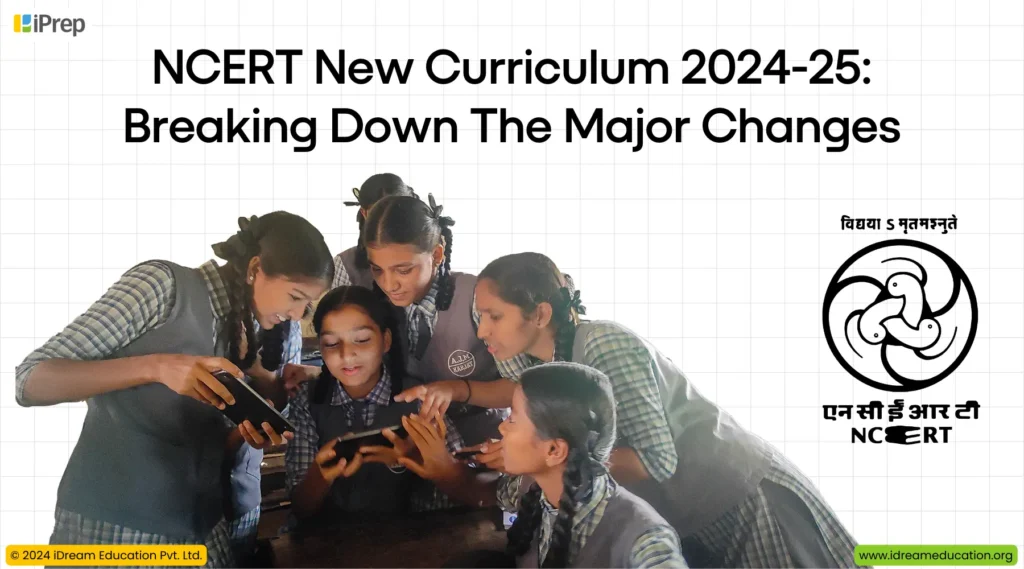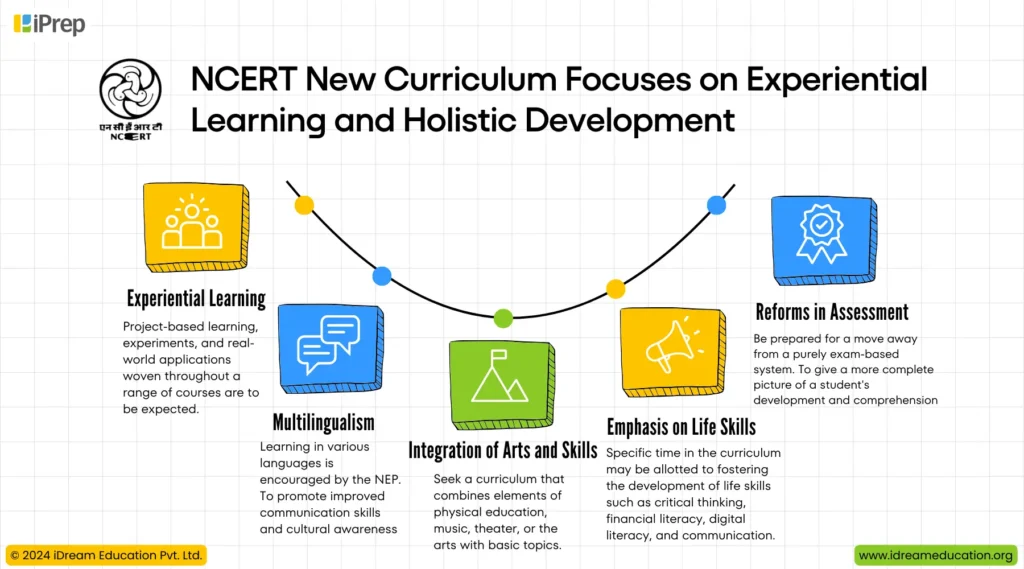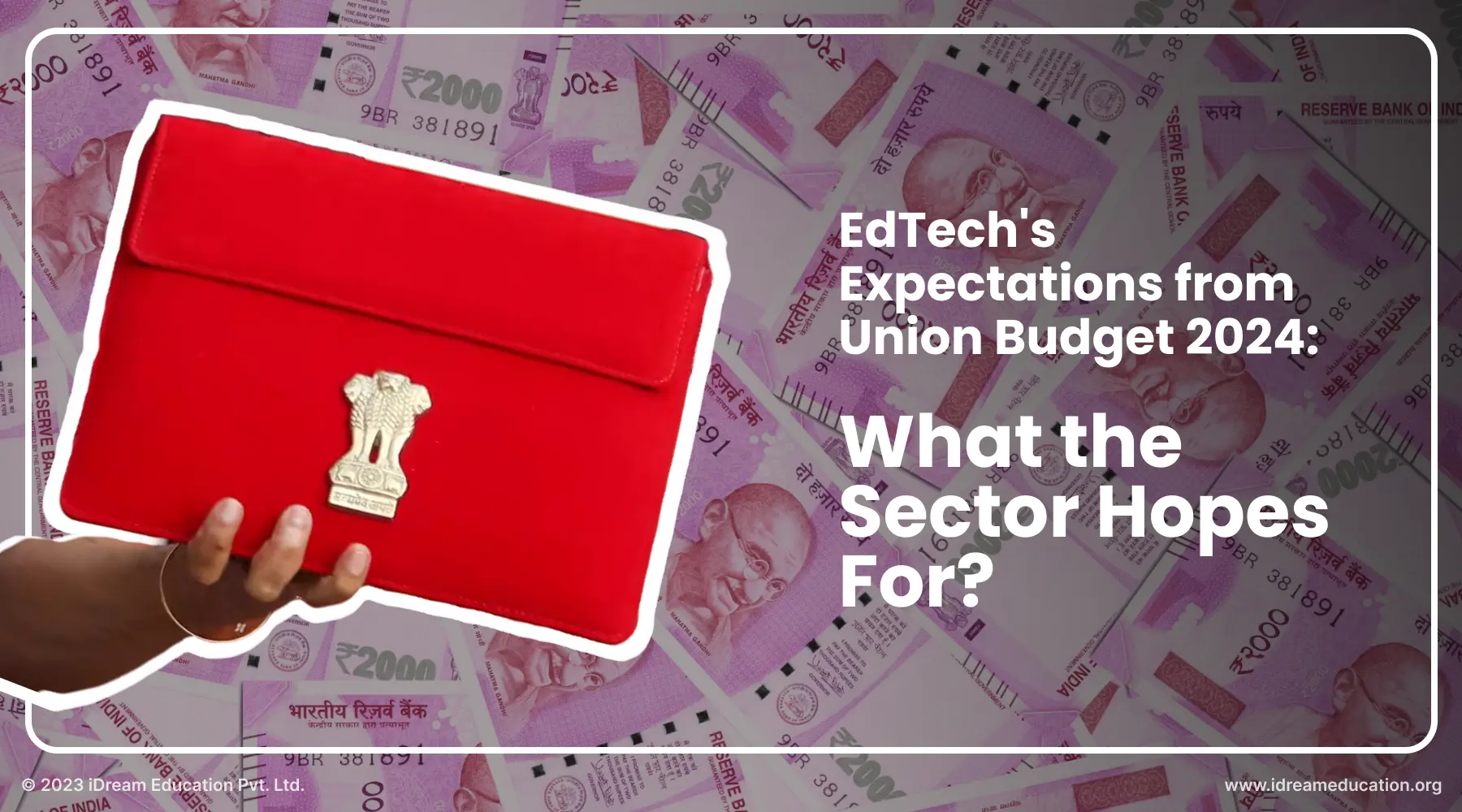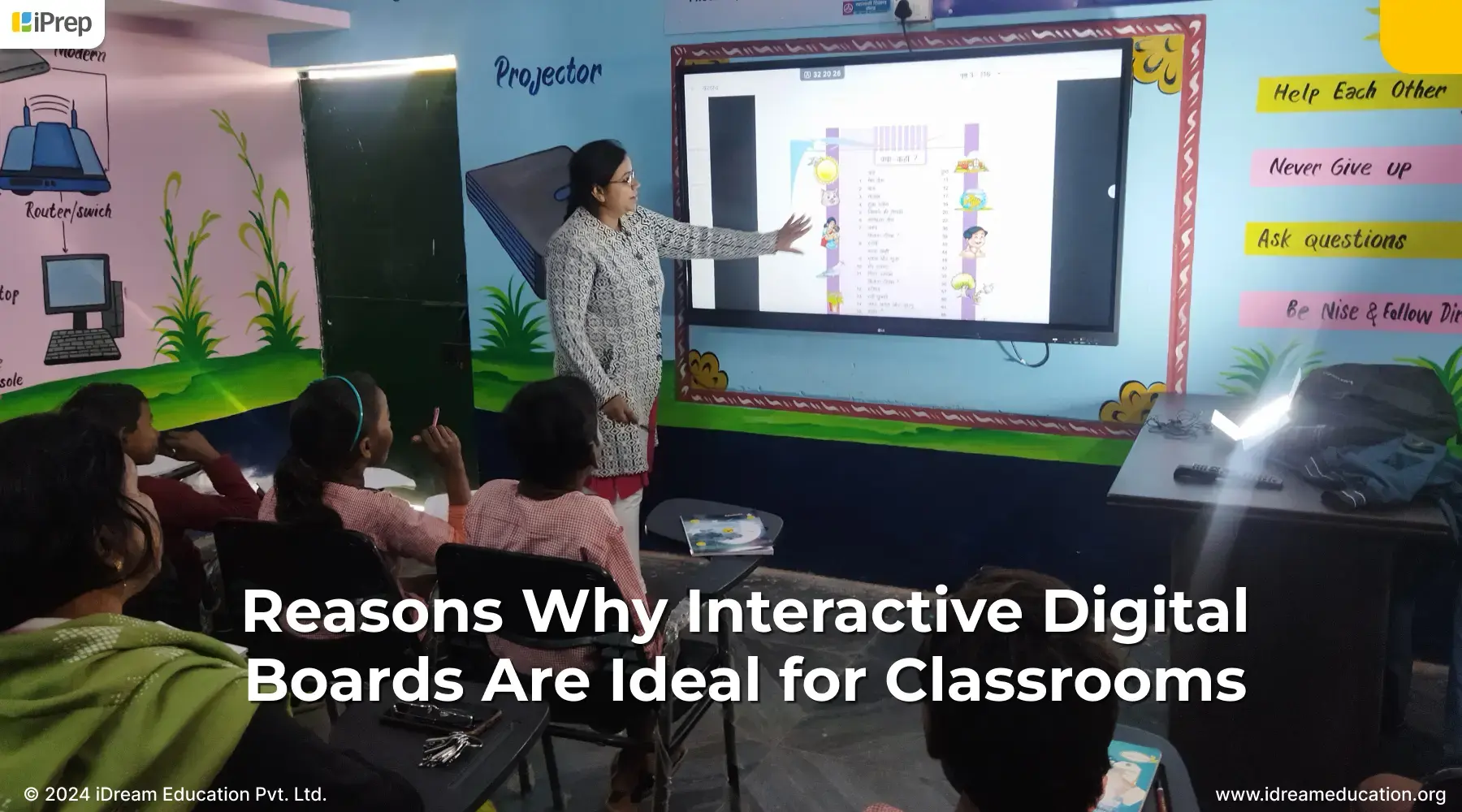NCERT New Curriculum 2024-25: Breaking Down The Major Changes

Education in India for the last few years has undergone some major transformation. This is driven by technological advancements, policy reforms, and changing societal needs. Amidst this ongoing transformation, the National Council of Educational Research and Training (NCERT) has recently announced revamping the curriculum for all grades. Within these changes, some are being ruled out based on Expert reviews, Stakeholder feedback, Recent developments, and Court rulings. Rest are simply for the sake of aligning it with the National Education Policy (NEP) 2020. This blog dives into the key changes you need to know, let’s unfold them one by one.
Major Changes In The NCERT New Curriculum
In recent times, the National Council of Educational Research and Training (NCERT) has made modifications to social science textbooks. Let us go deeper into the specifics of these changes:
References To Sensitive Historical Events
References to the demolition of a disputed structure in Ayodhya and the 2002 riots in Gujarat have been “updated” by NCERT. This is done to reflect current interpretations and give a more neutral and unbiased perspective to the students. By incorporating updated interpretations and striving for neutrality, the NCERT aims to provide learners with a nuanced view. This encourages critical thinking and empathy.
Better Choice Of Words
Regarding the selection of words, phrases such as “caste background” were changed to “social background”. This is done to encourage inclusiveness and to promote a more equitable dialogue. This shift recognizes that diversity exists beyond just caste distinctions and encompasses various facets of social identity. By opting for “social background,” the aim is to acknowledge the multifaceted nature of individuals’ experiences. Further, it aims to foster a more inclusive environment where everyone feels seen and valued regardless of their background.
Rectification Of Errors
Various factual errors such as election results were rectified before publication. This was done to ensure the accuracy and integrity of the information provided to school students and teachers. Additionally, rigorous fact-checking processes were implemented to scrutinize all data and statements, minimizing the chances of misinformation being disseminated.
Alteration In Mentions Of International Issues
Various parts with the mention of other countries such as the text used about Pakistan-occupied Kashmir were altered. This was done so that it is in line with the perspective taken by the Indian government.
NCERT emphasizes these are routine adjustments based on: Expert reviews, Stakeholder feedback, Recent developments, and Court rulings. These updates are separate from the ongoing curriculum redesign aligned with the National Education Policy (NEP) 2020. Let us now go through the changes made in the curriculum for it to better align with the National Education Policy.
Changes in NCERT New Curriculum 2024-25 With NEP at the Core
In the new changes in the curriculum announced by NCERT, there is a shift towards incorporating NEP’s vision across all grades. The changes include:
New curriculum and textbooks for grades 3 and 6
In the next academic year, the NCERT will release new curricula and textbooks, especially for grades 3 and 6. These ought to be perfectly in line with the NEP.
Recommendations from the NEP for every grade level
Schools are still encouraged to adhere to the National Curriculum Framework (NCF), which includes the suggestions from the NEP, such as multilingualism, art-integrated education, and experiential learning wherever feasible. All grades are affected by this, even those without an updated curriculum at this time. Let us further understand the growing focus on experiential learning and holistic development of the students.
Focus on Experiential Learning and Holistic Development

The NEP 2020 highlights the need to move away from memorization and towards a more comprehensive approach that centers on the total development of the learner. With NCERT’s consistent efforts towards effective implementation of NEP, the new NCERT curriculum reflects this in the following ways:
1. Experiential Learning
Project-based learning, experiments, and real-world applications woven throughout a range of courses are to be expected. Students are encouraged to actively interact with the content and form deeper connections as a result.
2. Multilingualism
Learning in various languages is encouraged by the NEP. This is to promote improved communication skills and cultural awareness. Further, this can entail adding a third language or enhancing already existing language programs.
3. Integration of Arts and Skills
Seek a curriculum that combines elements of physical education, music, theater, or the arts with basic topics. This encourages the application of a multidisciplinary perspective to problem-solving, creativity, and critical thinking.
4. Emphasis on Life Skills
Specific time in the curriculum may be allotted to fostering the development of life skills such as critical thinking, financial literacy, digital literacy, and communication. These abilities are essential for academic and future success.
5. Reforms in Assessment
Be prepared for a move away from a purely exam-based system. To give a more complete picture of a student’s development and comprehension, the new approach may include ongoing assessments such as projects, presentations, and student self-evaluations.
—————-
With these changes, NCERT aims to nurture our students not just as learners, but as thinkers, creators, and problem-solvers, fostering a holistic approach to education that prepares them for the challenges and opportunities of tomorrow.
That’s not it. As per the recent instructions by the Ministry of Education, NCERT is now advised to review and update textbooks every year.
iDream Education Curates The Latest NCERT Curriculum-Based content
The National Council of Educational Research and Training (NCERT)’s recent announcement to reform the curriculum for all grades and match it with the National Education Policy (NEP) 2020 marks a significant shift in Indian education. At iDream Education, we realize the necessity of being ahead of the curve and ensuring that our digital learning solutions are completely aligned with these growing criteria.
iDream Education: A suitable partner In the new curriculum landscape
Here’s how iDream Education goes beyond simply updating information to incorporate the overall concept of the NEP:
- Alignment with the Latest Curriculum: We have rigorously updated our learning platform and content to strictly correspond to the NCERT curriculum, including the most recent modifications announced.
- Experiential Learning: iDream Education extends beyond textbooks. We provide immersive simulations that bring topics to life and promote greater knowledge through practical application. These simulations allow students to react to the virtual environment while also understanding the practical ramifications of subjects.
- Multilingualism Made Simple: Our platform facilitates learning in numerous languages, encouraging inclusivity and greater cultural awareness, as promoted by the NEP.
- Art and Skills Integration: We support the NEP’s emphasis on merging arts and skills. Our activity videos and beyond academic subjects such as performing arts, music, and more help to foster a well-rounded education. Altogether, by integrating arts and skills into the curriculum, we provide students with avenues for creativity, self-expression, and personal development.
- Life Skills Take Centre Stage: iDream Education understands the value of life skills. We provide a wide range of disciplines outside of academics such as digital literacy, financial literacy, communication skills, leadership abilities, etc. all of which are available on one single platform.
- Refined Assessments: We acknowledge the shift away from exam-based evaluation. Our assessments go beyond rote memorization and include practice with instant feedback and self-evaluative tests to provide a comprehensive knowledge of a student’s abilities and help them achieve complete masteries over concepts.
By adopting these innovations, iDream Education enables teachers to provide a superior learning experience that is consistent with the NEP’s vision and the most recent NCERT curriculum. We are further devoted to providing complete and future-oriented digital learning solutions that will equip students for success in the twenty-first century.
Let’s conclude
In summary, the recent revision of the NCERT curriculum, which is in accordance with the National Education Policy (NEP) 2020, signifies a critical juncture in the development of education in India. These modifications demonstrate a dedication to flexibility, inclusiveness, and comprehensive growth. Further, through the process of updating historical narratives, refining language choices, rectifying errors, and realigning with contemporary perspectives, NCERT guarantees that the information provided to students is precise, pertinent, and well-balanced.
Furthermore, the incorporation of NEP principles—including but not limited to experiential learning, multilingualism, arts integration, life skills emphasis, and assessment reforms—marks the beginning of a paradigm shift towards an educational environment that is more holistic and progressive. By proactively aligning digital learning solutions with these evolving circumstances, iDream Education further solidifies its dedication to delivering an educational experience that is both dynamic and prepared for the future of students.
Collectively, these endeavors strive to cultivate not merely recipients of knowledge, but also individuals who are capable of generating ideas, solving problems, and navigating the intricacies of the future with assurance and proficiency.







